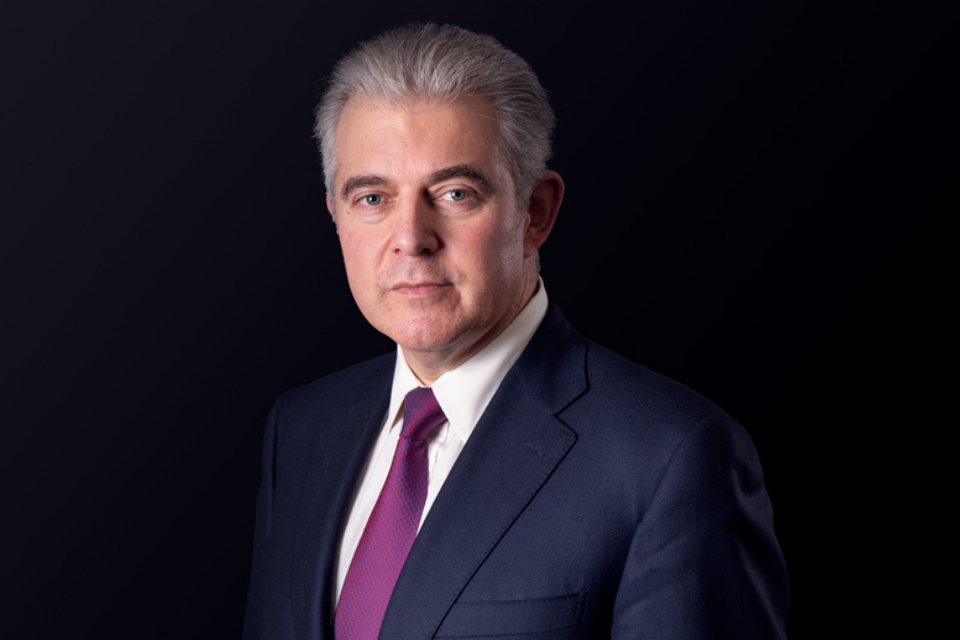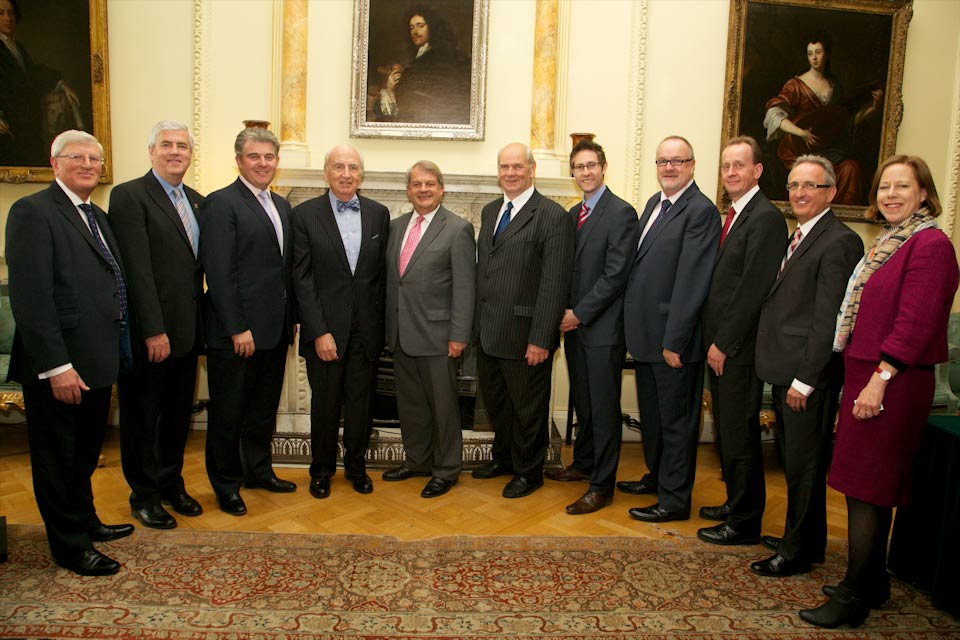Best councils to do business with awards
Speech by Local Government Minister Brandon Lewis at the 'best councils to do business with' awards ceremony.

It’s a great pleasure to be here to celebrate 10 worthy winners.

Brandon Lewis and Lord Young with representatives from the winning councils.
Thank you to Lord Young, for his support of this award and for his continued work to push this area forward and challenge those who claim that issues associated with procurement are barriers to change. The people in this room show this is not the case. You have shown what can be done locally, and what progress has already been made without intervention from central government.
None of you need me to tell you that working with local small and medium sized enterprises makes sense. You are encouraging local growth, jobs, skills development and innovation by providing opportunities for small local businesses to become an integral part of local service provision and delivery. Today is about praising those that don’t just talk the talk, but walk the walk.
We were looking for those councils who recognise the value of small businesses, who ensure access to procurement opportunities, who can clearly demonstrate how much they procure through small businesses, and who tailor their processes to support the needs of small businesses.
And we found them. We received 67 strong entries, all with great examples of how they meet some or all of the criteria. That means around 20% of councils took the opportunity to share their good practice with us. Even those bids who are not represented today showed clear and targeted strategies, innovative approaches and encouraging projects in the pipeline for the future.
I’d like to take this opportunity to thank the panel for their input - not just on judging the winning bids, which I know was a difficult task, but also on drawing up the criteria. This provides the awards with credibility - it’s not just our judgement from Whitehall, but those from the sector.
So onto the winners - and why you’re all here today. The winning bids showed real quality. The figures alone give a powerful message. In Halton a massive 86% of their actual procurement spend went to small businesses in 2011 to 2012. Bury have an equally impressive 74% of their spend and contracts going to small businesses. This is truly putting small businesses at the heart of the local economy.
Norfolk and Sheffield have shown how breaking up big contracts by geographical areas or specialism makes them more accessible to a wider variety of suppliers. Sub-contracts and consortia have proven to be another way of ensuring small business can be involved at any level - not just for small contracts.
A number of bids have shown that pre-qualification questionnaires can be abolished for smaller contracts without the world ending. Norfolk has abolished the use of these lengthy, cumbersome questionnaires that don’t recognise the scale or size of a small business, let alone what it can offer. City of London, Halton, Manchester and Barnsley have all adopted approaches that simplify processes and reduce bureaucracy - something I know Lord Young fully supports. And something that the Secretary of State strongly supports.
We’ve seen prompt payments within 10 days, for example in Harrow, Halton and Bury. And further schemes being developed across the country to offer even earlier payment to aid cash flow to small businesses who may rely on that payment for survival.
We’ve seen integrated procurement strategies that celebrate the individuality of each small business across all bids, as shown in Manchester’s bid. There are great examples of ‘meet the buyer’ days, workshops, networks, co-designs, consultations and training that together makes bidding for tenders more accessible. Barnsley and City of London both showed the benefits of using a range of communication and engagement activities. And in Hertfordshire we’ve seen the value of embracing events like the Olympics to boost opportunities for small businesses and create a legacy of valuing local skills and knowledge.
It was encouraging to see a joint bid amongst the winners, with Surrey and East Sussex working in partnership to share procurement expertise. This show the advantage of a mature approach to sharing services. They have also shown the benefit of providing tailored procurement exercises and, along with Halton Borough Council, the use of data to drive improvement.
All of this was done locally, driven by teams that are passionate about promoting opportunities in their area. And you’re seeing the benefits. You are working with individual firms or social enterprise that are enthusiastic, committed, innovative and flexible and understand the communities they’re working in. You’re seeing job creation and apprenticeships coming directly out of your procurement strategies. And of course you’re seeing profit being generated in your local area, and savings coming directly to you from more efficient and proportionate practices.
I was struck by some of general messages that kept being repeated throughout all the bids. As Norfolk say ‘simple steps can make a big difference’. Improving processes does not mean adding to them. Equally it’s the small things that count as the City of London said. Quick, easy-wins are still possible without devoting significant resources to change programmes. Sheffield clearly noted that you cannot adopt a one-size-fits-all approach. And it’s important to say that procurement does not just end at the let of a contract, as Manchester have highlighted.
And not only are you the best in class at procurement, I’m encouraged to see that a number of you recognise the need for more innovative approaches to service reform more generally with local their partners and have therefore expressed an interest to work with the Public Service Transformation Network that was announced at the Budget.
This leads on to what happens next. You’ve heard from Lord Young and have seen the recommendations in his report, which will be taken forward by the government, with full consultation from the sector. I’m sure you will all contribute to that process. And you’ve all outlined clear next steps to be taken locally, which we fully support. So celebrate this success. You have started this work, you have embraced it, and you will continue to reap the rewards. Spread best practice, challenge existing norms and processes, support partners and neighbours and open up more opportunities to work with local small businesses as ‘Best Councils’.